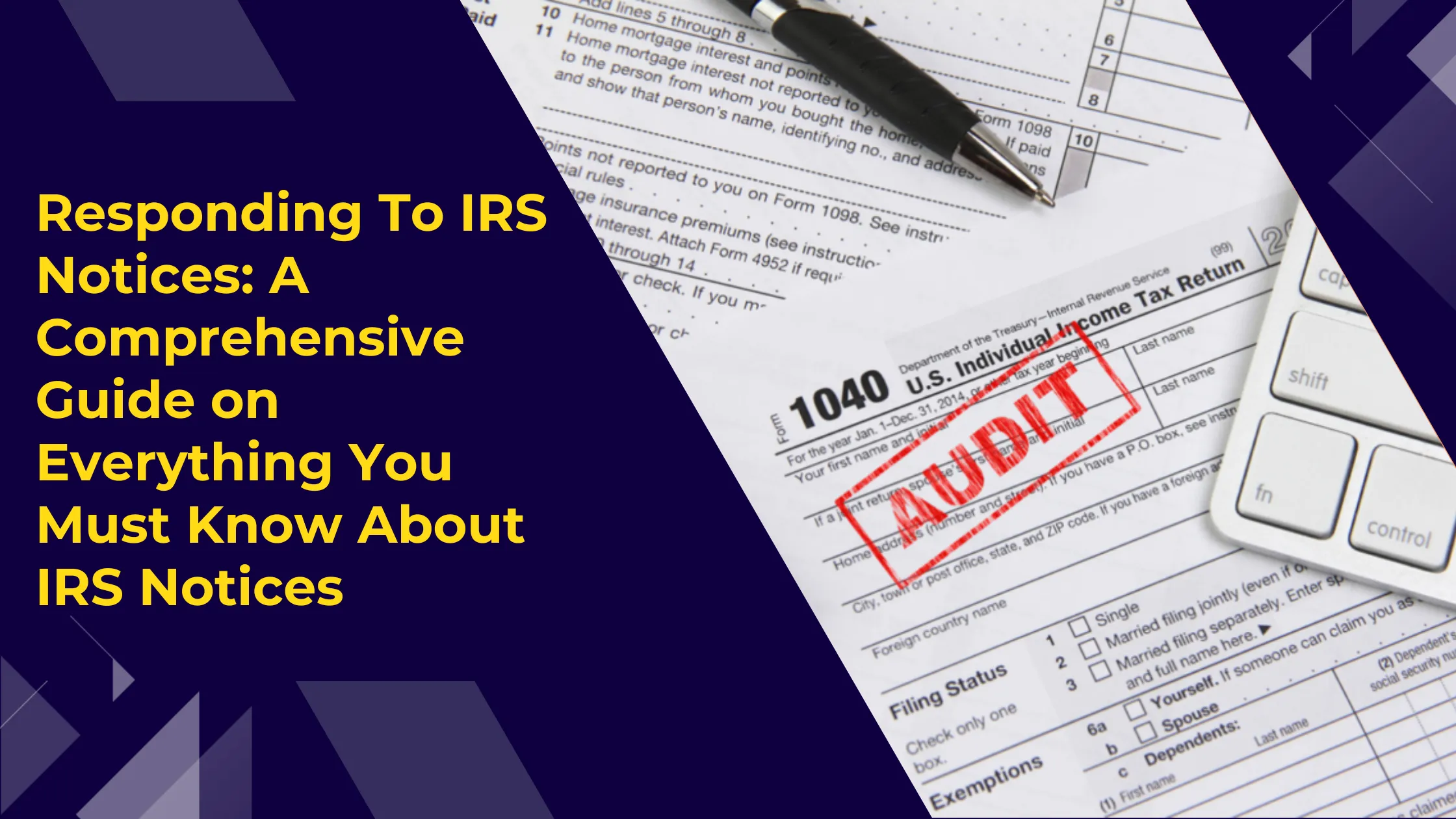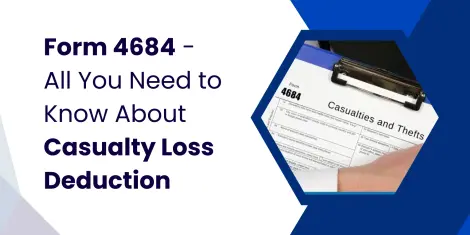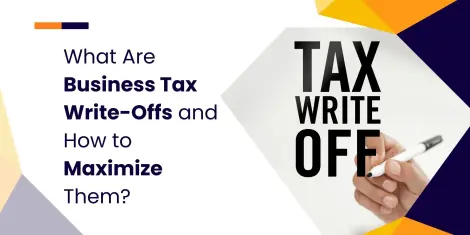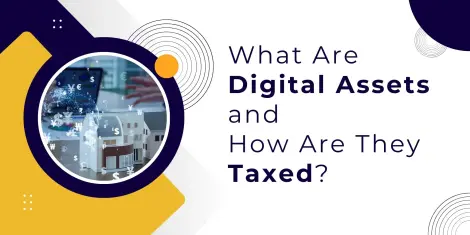Table of Contents
Receiving a notice from the Internal Revenue Service (IRS) can be a nerve-wracking experience for many taxpayers. However, it's crucial to understand that these notices are not necessarily indicative of a major problem or wrongdoing. The IRS issues various types of notices for different reasons, ranging from routine requests for additional information to more serious matters involving potential audits or legal actions. How you respond to these notices can significantly impact the outcome and potentially mitigate any penalties or additional tax liabilities. This comprehensive guide can help you understand IRS notices, their different types, and provide practical steps for responding to them effectively.
Understanding Why the IRS Sends Out Notices
Verifying Tax Return Information- The IRS has access to a vast array of third-party information sources, including data from employers, financial institutions, and other government agencies. As part of their efforts to ensure accurate tax filing, the IRS may send notices to taxpayers to verify the information reported on their tax returns. This process involves cross-checking the income, deductions, credits, or other claims made on the tax return against the third-party data.
Addressing Math Errors or Calculation Mistakes- Tax returns can be complex, involving numerous calculations and intricate rules. To identify potential errors or miscalculations, the IRS employs automated systems to review tax returns. If these systems detect mathematical errors, inconsistencies, or mistakes in the calculations, the IRS may send a notice to the taxpayer.
Enforcing Tax Law Changes or Updates- Tax laws and regulations are not static. They are subject to periodic changes and updates by Congress, the IRS, or other governing bodies. When such changes occur, they may impact how certain items are reported or taxed on individual or business tax returns. In these situations, people receive IRS letters relevant changes and how they affect their tax situation.
Responding to Taxpayer Inquiries or Claims- The IRS does not only initiate communication through notices; taxpayers can also initiate contact with the agency through inquiries or claims. For example, if a taxpayer requests a refund or files an amended tax return, the IRS may send a notice acknowledging the request and providing information about the status of the claim. Additionally, if a taxpayer raises a specific question or concern regarding their tax situation, the IRS may issue a notice in response, offering guidance or requesting additional information to address the inquiry properly.
Addressing Suspected Tax Fraud or Evasion- While most taxpayers strive to comply with tax laws, there are instances where the IRS suspects intentional non-compliance, such as underreporting income, claiming excessive deductions, or engaging in other forms of tax fraud or evasion. In these cases, the IRS may initiate an investigation and issue notices related to the suspected non-compliance.
Resolving Identity Theft or Data Breaches- In the digital age, identity theft and data breaches pose significant risks, including potential tax-related fraud. If the IRS suspects that a taxpayer's identity has been compromised or that their tax information has been accessed or used without authorization, the agency may send notices to the affected individuals.
It's important to remember that receiving an IRS notice does not necessarily imply wrongdoing or illegal activities on the part of the taxpayer. Many notices are routine and can be resolved by providing the requested information or making necessary corrections. However, some notices may indicate more serious issues that require prompt attention and, in certain cases, professional assistance from a professional tax services firm to navigate the situation effectively.
What Are the Different Types of IRS Notices?
The IRS issues various types of notices, each with its own purpose and implications. Understanding the specific notice you have received is crucial for responding appropriately. Here are some of the most common types of IRS notices:
CP Notices -The CP series of notices from the IRS, such as the CP2000 and CP501, are often referred to as "underreporter" notices. These notices typically indicate that the IRS believes you have underreported your income or claimed deductions/credits incorrectly. The CP2000 notice specifically deals with unreported income, while the CP501 notice relates to discrepancies in claimed credits or deductions. These notices provide a detailed breakdown of the proposed changes and the resulting tax liability. They may request additional documentation or explanations to support your original filing, such as Forms W-2, 1099, or receipts for deductions claimed. If you agree with the proposed changes, you can simply pay the additional tax owed. However, if you disagree, you must provide a written response with supporting documentation within the specified timeframe. Failure to respond could result in the IRS making the proposed adjustments and issuing a bill for the additional tax, interest, and potential penalties.
Notice of Deficiency- The Notice of Deficiency, also known as the "90-day letter" or the CP3219N notice, is one of the most serious types of notices issued by the IRS. This notice proposes additional taxes and penalties that the IRS believes you owe. It outlines the specific tax years and the reasons for the proposed changes, such as disallowed deductions, unreported income, or incorrect tax calculations. The notice provides a detailed explanation of the IRS's findings and the basis for their determination. If you disagree with the IRS's findings, you have the right to file a petition with the United States Tax Court within the 90-day period specified in the notice. Failure to file a petition within the 90-day window will make the proposed tax liability legally enforceable, and the IRS may proceed with collection actions. It's crucial to seek professional assistance from a tax attorney or enrolled agent if you receive this notice, as the legal implications and potential financial consequences can be significant.
Audit Notices - The IRS issues various IRS audit notices, such as the CP75 (Office Audit), CP88 (Field Audit), or LT11 (Correspondence Audit), to inform taxpayers that their tax returns have been selected for an audit. An audit is a comprehensive review of your tax information to ensure accuracy and compliance with tax laws. Audits can be conducted through mail correspondence, an in-person interview at an IRS office, or an in-person visit to your home or business. The notice will specify the tax year(s) under review and may request additional documentation or information to substantiate the items reported on your return. Audits can cover a wide range of issues, including income, deductions, credits, business expenses, and compliance with tax laws and regulations. It's essential to cooperate fully with the audit process and provide all requested documentation in a timely and organized manner. Failure to cooperate or provide adequate documentation could result in the disallowance of deductions or credits, and potentially additional taxes, penalties, and interest.
Collection Notices - Collection notices, such as the CP504 (Notice of Intent to Levy), CP503 (Notice of Federal Tax Lien), or CP90 (Final Notice of Intent to Levy and Notice of Your Right to a Hearing), are issued when you have outstanding tax liabilities that remain unpaid after multiple attempts by the IRS to collect. The CP503 notice alerts creditors and the public that the IRS has a legal claim against your property for unpaid taxes. The CP504 warns that the IRS may seize your assets, garnish your wages, or take other enforcement actions to collect the debt if you do not pay or make arrangements to resolve the outstanding balance. The CP90 notice allows you to request a hearing before the IRS takes enforcement action. Failure to respond to collection notices or make payment arrangements could result in the IRS taking immediate collection actions, such as levying your bank accounts or garnishing your wages.
Identity Theft Notices- If the IRS suspects that your identity has been compromised and used for fraudulent tax purposes, they may issue an identity theft notice, such as the CP01A or CP01B. These notices typically require you to verify your identity and provide additional documentation to protect against further identity theft and tax fraud. You may be asked to complete an Identity Theft Affidavit (Form 14039) and provide supporting documents, such as copies of government-issued identification or a police report if your identity was stolen. It's essential to respond promptly to these notices and follow the IRS's instructions to resolve the issue and prevent any potential negative consequences, such as delays in processing your tax return or receiving refunds.
Decoding Every IRS notice
While these are some of the most common types of IRS notices with their specific numbers, the agency may issue other notices depending on specific circumstances, such as penalty notices, refund notices, or requests for additional information related to various tax matters. Here are all the IRS notices decoded:
|
Notice Type |
Explanation |
Notice Topic |
|
CP01, CP01A, CP01B, CP01C, CP01H, CP01S |
Notices related to outstanding tax balances, billing, and payment demands for individual tax returns. |
Tax Balance/Payment |
|
CP02H |
Notice related to outstanding tax balances and payment demands for business tax returns. |
Tax Balance/Payment |
|
CP03C |
Notice related to claiming the Additional Child Tax Credit. |
Tax Credits |
|
CP04, CP05, CP05A, CP05B |
Notices related to changes made to the taxpayer's individual tax return. |
Tax Return Changes |
|
CP06, CP06A |
Notices related to changes made to the taxpayer's business tax return. |
Tax Return Changes |
|
CP07, CP08, CP09 |
Notices related to penalties and interest charges on unpaid tax balances. |
Penalties/Interest |
|
CP10, CP10A |
Notices related to the Earned Income Tax Credit (EITC) claim. |
Tax Credits |
|
CP11, LT11, ST11, CP11A, CP11M |
Notices related to changes made to the taxpayer's individual tax return and requests for additional information or documentation. |
Tax Return Changes |
|
CP12, CP12A, CP12E, CP12F, CP12M, CP12R |
Notices related to changes made to the taxpayer's business tax return and requests for additional information or documentation. |
Tax Return Changes |
|
CP13, CP13A, CP13M, CP13R |
Notices related to the taxpayer's individual tax return and requests for additional information or documentation. |
General |
|
CP14, CP14 A/B/C/D/E, LT14, ST14, CP14H, CP14I |
Notices related to the taxpayer's individual tax return and potential identity theft or fraud issues. |
Identity Theft/Fraud |
|
CP15B, CP15H |
Notices related to the taxpayer's individual tax return and requests for additional information or documentation. |
General |
|
CP16, LT16, ST16 |
Notices related to the taxpayer's individual tax return and potential identity theft or fraud issues. |
Identity Theft/Fraud |
|
CP18, LT18, ST18 |
Notices related to the taxpayer's individual tax return and potential identity theft or fraud issues. |
Identity Theft/Fraud |
|
CP19 |
Notice related to the taxpayer's individual tax return and a request for additional information or documentation. |
General |
|
CP20 |
Notice related to the taxpayer's individual tax return and a proposed adjustment or change. |
Tax Return Changes |
|
CP21A, CP21B, CP21C, CP21E, CP21H, CP21I |
Notices related to the taxpayer's individual tax return and potential identity theft or fraud issues. |
Identity Theft/Fraud |
|
CP22A, CP22E, CP22H, CP22I |
Notices related to the taxpayer's business tax return and potential identity theft or fraud issues. |
Identity Theft/Fraud |
|
CP23 |
Notice related to the taxpayer's individual tax return and a request for additional information or documentation. |
General |
|
CP24, LT24, ST24, CP24E |
Notices related to the taxpayer's individual tax return and potential identity theft or fraud issues. |
Identity Theft/Fraud |
|
CP25 |
Notice related to the taxpayer's individual tax return and a request for additional information or documentation. |
General |
|
LT26, ST26 |
Notices related to the taxpayer's individual tax return and potential identity theft or fraud issues. |
Identity Theft/Fraud |
|
CP27, LT27, ST27 |
Notices related to the taxpayer's individual tax return and potential identity theft or fraud issues. |
Identity Theft/Fraud |
|
CP30, CP30A |
Notices related to the taxpayer's individual tax return and a request for additional information or documentation. |
General |
|
CP32, CP32A |
Notices related to the taxpayer's individual tax return and a request for additional information or documentation. |
General |
|
LT33, ST33 |
Notices related to the taxpayer's individual tax return and potential identity theft or fraud issues. |
Identity Theft/Fraud |
|
CP39, LT39, ST39 |
Notices related to the taxpayer's individual tax return and potential identity theft or fraud issues. |
Identity Theft/Fraud |
|
LT40, ST40 |
Notices related to the taxpayer's individual tax return and potential identity theft or fraud issues. |
Identity Theft/Fraud |
|
LT41, ST41 |
Notices related to the taxpayer's individual tax return and potential identity theft or fraud issues. |
Identity Theft/Fraud |
|
CP42 |
Notice related to the taxpayer's individual tax return and a request for additional information or documentation. |
General |
|
CP44 |
Notice related to the taxpayer's individual tax return and a proposed adjustment or change. |
Tax Return Changes |
|
CP45 |
Notice related to the taxpayer's individual tax return and a request for additional information or documentation. |
General |
|
LP47 |
Notice related to the taxpayer's individual tax return and a proposed adjustment or change. |
Tax Return Changes |
|
CP49 |
Notice related to the taxpayer's individual tax return and a request for additional information or documentation. |
General |
|
CP51A, CP51B, CP51C |
Notices related to the taxpayer's individual tax return and a request for additional information or documentation. |
General |
|
CP52 |
Notice related to the taxpayer's individual tax return and a request for additional information or documentation. |
General |
|
CP53, CP53A, CP53B, CP53C, CP53D |
Notices related to the taxpayer's individual tax return and a request for additional information or documentation. |
General |
|
CP54B, CP54E, CP54G, CP54Q |
Notices related to the taxpayer's individual tax return and a request for additional information or documentation. |
General |
|
CP57 |
Notice related to the taxpayer's individual tax return and a request for additional information or documentation. |
General |
|
CP59, LP59 |
Notices related to the taxpayer's individual tax return and a request for additional information or documentation. |
General |
|
CP60 |
Notice related to the taxpayer's individual tax return and a request for additional information or documentation. |
General |
|
LP61 |
Notice related to the taxpayer's individual tax return and a proposed adjustment or change. |
Tax Return Changes |
|
CP62, LP62 |
Notices related to the taxpayer's individual tax return and a request for additional information or documentation. |
General |
|
CP63 |
Notice related to the taxpayer's individual tax return and a request for additional information or documentation. |
General |
|
LP64, SP64 |
Notices related to the taxpayer's individual tax return and a request for additional information or documentation. |
General |
|
LP68 |
Notice related to the taxpayer's individual tax return and a proposed adjustment or change. |
Tax Return Changes |
|
CP71, CP71A, CP71C, CP71D, CP71H |
Notices related to the taxpayer's individual tax return and a request for additional information or documentation. |
General |
|
CP72 |
Notice related to the taxpayer's individual tax return and a request for additional information or documentation. |
General |
|
LT73, ST73 |
Notices related to the taxpayer's individual tax return and potential identity theft or fraud issues. |
Identity Theft/Fraud |
|
CP74 |
Notice related to the taxpayer's individual tax return and a request for additional information or documentation. |
General |
|
CP75, LT75, ST75, CP75A, CP75C, CP75D |
Notices related to the taxpayer's individual tax return and a request for additional information or documentation. |
General |
|
CP76 |
Notice related to the taxpayer's individual tax return and a request for additional information or documentation. |
General |
|
CP77 |
Notice related to the taxpayer's individual tax return and a request for additional information or documentation. |
General |
|
CP79, CP79A, CP79B |
Notices related to the taxpayer's individual tax return and a request for additional information or documentation. |
General |
|
CP80 |
Notice related to the taxpayer's individual tax return and a request for additional information or documentation. |
General |
|
CP81 |
Notice related to the taxpayer's individual tax return and a request for additional information or documentation. |
General |
|
CP87A, CP87B, CP87C, CP87D |
Notices related to the taxpayer's individual tax return and a request for additional information or documentation. |
General |
|
CP88 |
Notice related to the taxpayer's individual tax return and a request for additional information or documentation. |
General |
It's essential to carefully review each notice you receive from the IRS, as the specific type of notice will dictate the appropriate course of action and the potential consequences of inaction.
How to Respond to IRS Notices
When you receive an IRS notice, it's crucial to take prompt action and respond within the specified timeframe. Review the notice carefully and compare the information provided by the IRS against your tax return and records. If you agree with the proposed changes, follow the instructions in the notice to pay the additional tax owed. However, if you disagree with the changes, you must respond in writing within the specified timeframe (typically 30-60 days). Here’s how you can respond to different notices:
Notice of Deficiency- This notice is extremely time-sensitive, and you have only 90 days from the date of the notice to file a petition with the United States Tax Court if you disagree with the IRS's determination. It is advisable to seek professional assistance from a tax attorney or enrolled agent, as the legal implications and potential financial consequences can be significant. If you decide to file a petition, follow the instructions provided in the notice and submit it to the appropriate Tax Court within the 90-day window. On the other hand, if you agree with the IRS's findings, pay the proposed tax liability or make payment arrangements before the 90-day period expires to avoid further penalties and interest.
Audit Notices- Respond promptly to the audit notice and provide the requested information and documentation by the specified deadline. Gather all relevant tax records, receipts, canceled checks, and other supporting documents for the tax year(s) under review. If you need additional time to gather the requested information, contact the IRS immediately to request an extension. Cooperate fully with the auditor and answer all questions truthfully and to the best of your knowledge. If you disagree with any of the auditor's findings, provide a written explanation and supporting documentation to substantiate your position.
Collection Notices- Act quickly to avoid further enforcement actions by the IRS. If you can pay the outstanding balance in full, do so immediately to stop additional penalties and interest from accruing. If you cannot pay the full amount, contact the IRS to discuss payment plan options or other alternatives, such as an Offer in Compromise or Currently Not Collectible status. For the CP90 notice, follow the instructions to request a hearing if you disagree with the proposed collection action. Provide any requested documentation or information to support your case.
Identity Theft Notices- Act promptly to protect your identity and prevent further fraud or complications with your tax situation. Follow the instructions in the notice to complete the Identity Theft Affidavit (Form 14039) and provide supporting documentation, such as copies of government-issued identification or a police report. Keep detailed records of all correspondence and interactions with the IRS regarding the identity theft issue. Consider placing a fraud alert or credit freeze on your credit reports to prevent further misuse of your personal information.
It's important to note that failing to respond to an IRS notice can have severe consequences, including additional penalties, interest charges, or even legal action. If you are unsure about how to proceed or require more time to gather the necessary information, it's advisable to connect with a professional and explain your situation.
Tips to Keep in Mind While Responding to Notices
#1 Don't ignore the notice. Ignoring an IRS notice will not make the issue go away and can lead to escalating penalties, interest charges, and potential legal action. Addressing the notice promptly is crucial to resolving the matter favorably.
#2 Request Extension. If you need more time to gather the requested information, contact the IRS promptly to request an extension.The IRS may grant you additional time to respond, but you must communicate your need for an extension before the original deadline expires.
#3. Gather all documents. Be prepared to substantiate your claims with appropriate documentation. The IRS requires verifiable evidence to support your position or the information reported on your tax return. Gather all relevant documents, such as receipts, invoices, bank statements, and any other supporting materials.
#4. Get professional advice. Seeking professional assistance if the notice involves complex tax issues or potential legal action: While some IRS notices may be relatively straightforward to address, there are situations where seeking professional assistance from a tax attorney, enrolled agent, or certified public accountant (CPA) is advisable.
When to Seek Professional Help
While some IRS notices may be manageable for taxpayers to handle on their own, there are situations where seeking professional assistance is highly recommended. These scenarios include:
- If you disagree with the IRS's determination and plan to file an appeal or petition with the United States Tax Court: Navigating the appeals process or presenting a case before the Tax Court can be complex and may require specialized legal expertise.
- If the notice involves complex tax issues, such as business taxes, estate taxes, or international tax matters: These areas of taxation often involve intricate rules and regulations that may be best handled by professionals with specialized knowledge and experience.
- If the notice threatens legal action, such as a levy or seizure of assets: When the IRS threatens to take enforcement actions, it's crucial to seek guidance from a qualified tax professional to protect your rights and explore potential resolution options.
- If you are unable to gather the requested documentation or information on your own: In some cases, the IRS may request extensive documentation or financial records that may be challenging to compile without professional assistance.
Conclusion
Receiving an IRS notice can be a stressful and overwhelming experience, but it's important to approach the situation calmly and proactively. By understanding the different types of notices, following the recommended steps for responding, and seeking assistance when necessary, you can increase your chances of resolving the issue favorably. Seeking professional help from a reputable tax attorney, enrolled agent, or CPA like NSKT can provide valuable guidance, increase your chances of a favorable outcome, and potentially mitigate any penalties or additional tax liabilities. If you find yourself in a situation where you are unable to resolve the matter on your own or the notice involves complex tax issues or legal implications, qualified tax professionals from NSKT can set the right approach and assistance to help you effectively navigate IRS notices and minimize any potential negative outcomes.







